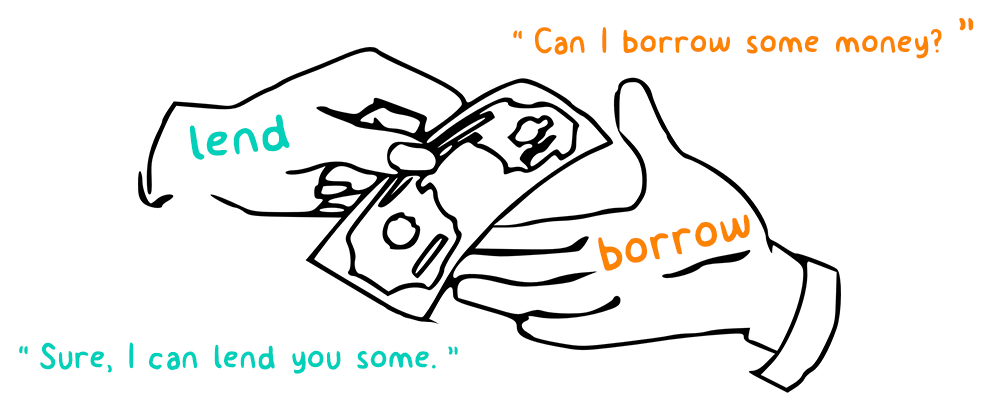
Non-native speakers often confuse the words rent and borrow when speaking English. This is understandable because on the surface, these words seem very similar, but actually, they are quite different.
The main difference between rent and borrow is whether money is paid for the use of something.
- When you rent something, you pay money to use it for a period of time, then return it. (You don't own it permanently.)
- When you borrow something, you use it for free and then return it.
For example:
- to rent
- Let’s rent a car for our trip, rather than take the train.
- I would love to rent that apartment, but it’s too expensive.
- to borrow
- Can I borrow a pen, please?
- I forgot my wallet—can I borrow $20?
The word rent can be used in both directions:
- I am renting my apartment from a landlord, and the landlord is renting the apartment to me.
Borrow only goes in one direction: I am borrowing it from you. To talk about giving someone something they want to borrow, we use the word lend.
Using LEND
In English, always use lend or borrow (never rent) when talking about exchanging money. This is the case even if you are paying interest, for instance, on a bank loan. If you buy an apartment, you borrow money for it. Likewise, the bank lends money.
Confusing the words borrow and lend is also a problem. The confusion stems from the fact that both words describe the same action. However, borrow and lend describe the opposite directions of that transaction.
- The person who gives the thing to someone else lends it.
- The person who takes the thing borrows it.
Picture it like this:

Another way to say the same thing is, "Can you lend me some money?" "Sure, you can borrow some." The difference is just the change in the subject of the sentence, e.g.:
| Person A | Person B |
|---|---|
| Can I borrow some money? | Sure, I can lend you some. |
| Can you lend me some money? |
Sure, you can borrow some. |
Be aware of the subject of the sentence. If you are unsure which word to use, you can refer back to the picture above.
If you do make a mistake with rent, borrow or lend, it will fundamentally change the meaning of the sentence. So be careful about these three verbs. If you need help, your teacher can always lend a hand.
—
stems from the fact that [set phrase]—is because of... (If you'd like to learn more transition phrases to describe cause, take a look at Lesson 5 of our Transitions Course.)
to lend a hand [set phrase]—to help someone.